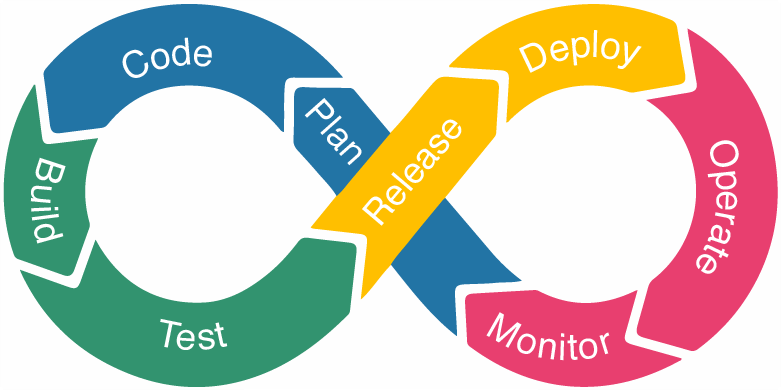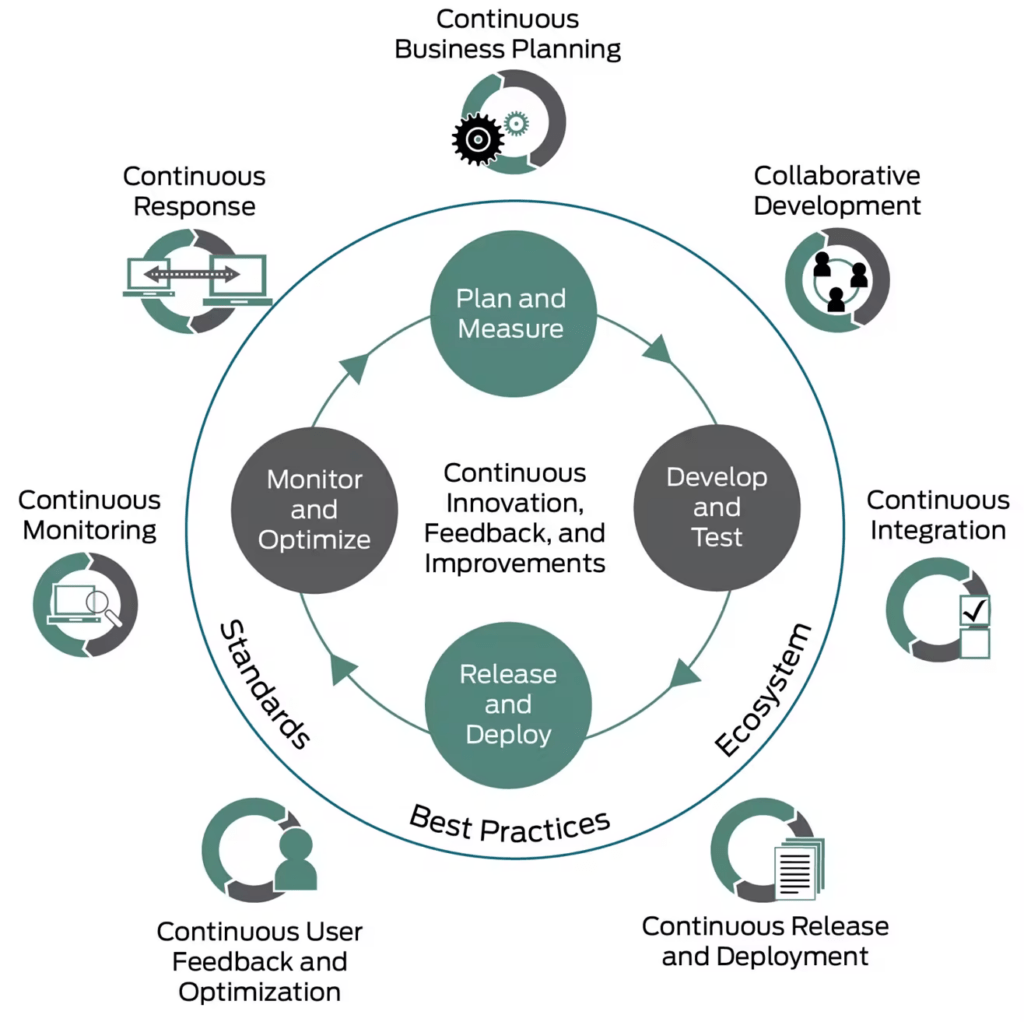In order to fully comprehend the significance of DevOps, it is essential to understand what DevOps truly entails.
What is DevOps?

DevOps (an abbreviation for “Development” and “Operations”), stemming from an agile approach, represents an organizational approach that facilitates faster development and easier maintenance of existing applications. It is not merely a technology, but rather a philosophy encompassing tools, processes, and work culture within a team.
What is not DevOps?
DevOps is not a sole position within an organization. It’s not a magical solution to all problems during software development, and it’s not something that should be taken lightly. As with any methodologies, it has it’s benefits, and it’s shortcomings.
Why use DevOps?
The DevOps framework expedites software delivery by leveraging automation and enhancing collaboration among team members. This enables quicker implementation of new features and more efficient bug fixes. By tearing down the walls between development and operations teams, the entire software development process becomes streamlined.
Through the utilization of CI/CD (Continuous Integration/Continuous Delivery) pipelines, DevOps automates the integration of code changes, performs tests, and facilitates seamless deployment to production environments. This minimizes the time from concept to realization and accelerates the frequency of updates.
The DevOps philosophy nurtures a culture of collaboration and effective communication among development, operations, and other stakeholders. This fosters the alignment of goals, conflict resolution, and knowledge sharing, resulting in highly efficient software development processes.
Moreover, DevOps promotes stability and reliability by emphasizing the construction of robust and dependable systems. By automating infrastructure provisioning, configuration management, and monitoring, there is less chance of human errors, ensuring consistent and reliable environments for the development team to deploy the product. Consequently, stability is enhanced, and failures in production environments are reduced.
Furthermore, the adoption of DevOps practices enables organizations to scale their infrastructures and applications rapidly and efficiently. With the utilization of cloud technologies, virtualization, and containerization, teams can effortlessly add, remove, or update resources according to demand. This flexibility allows organizations to respond promptly to market changes and customer needs.
By actively soliciting feedback from customers and stakeholders at each stage of the software development life-cycle and continuously monitoring applications in production, teams can proactively identify and address issues. This iterative approach facilitates ongoing improvements and ultimately enhances the overall customer experience.
By embracing DevOps, organizations can achieve rapid innovation and maintain a competitive edge in today’s fast-paced market. Automation of processes and manual tasks, coupled with a culture of experimentation, empowers teams to focus on delivering superior products efficiently, thereby driving business growth.

Conclusion
In summary, DevOps practices significantly reduce time to market, improves collaboration within teams, enhances the quality and reliability of systems, provides scalability and flexibility, and ultimately yield cost savings. Embracing DevOps is crucial for organizations seeking to thrive in today’s dynamic and competitive business landscape.
Some bibliography about DevOps:


One reply on “Why do we need DevOps?”
[…] Related: Why de we need DevOps? […]